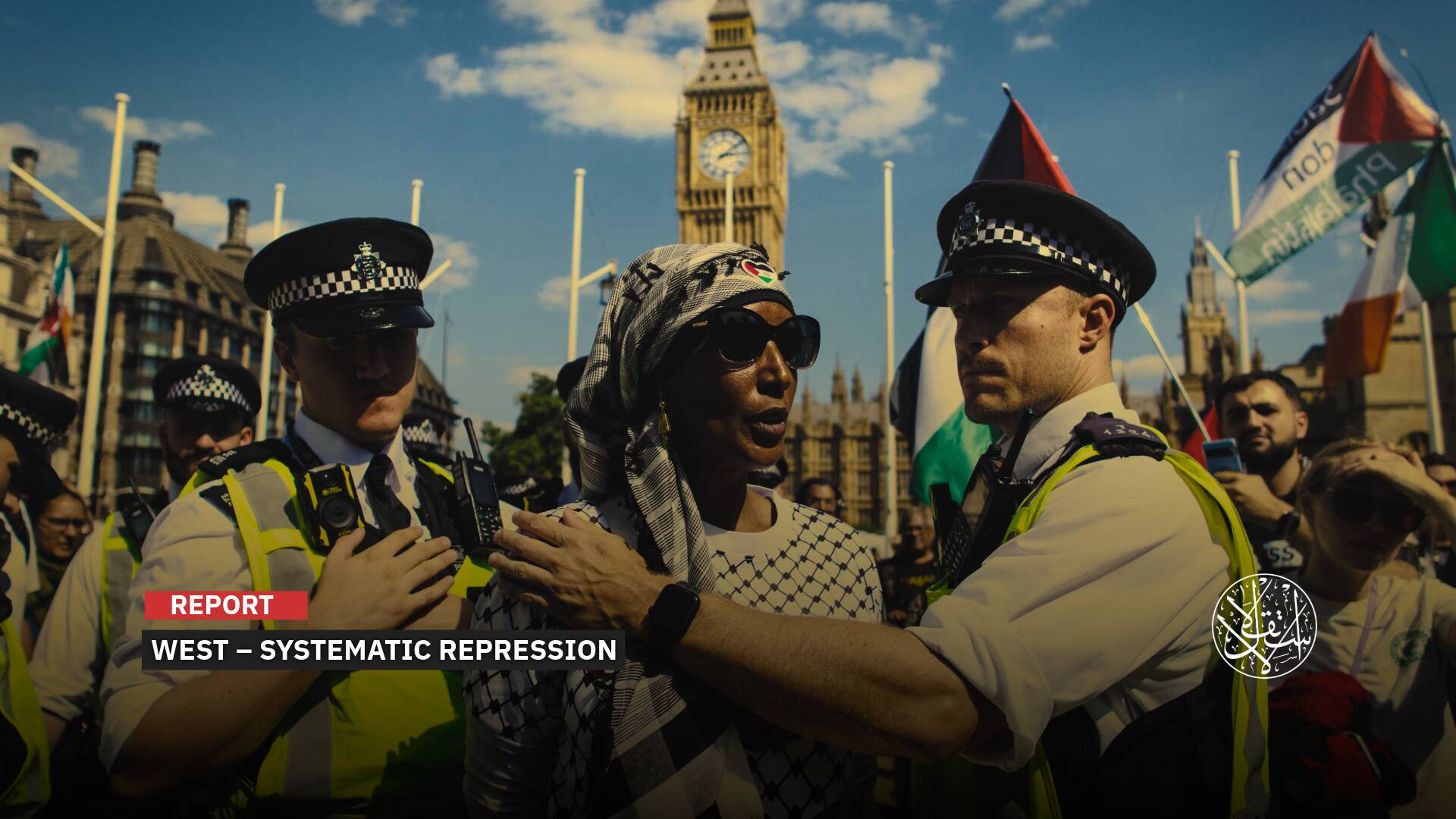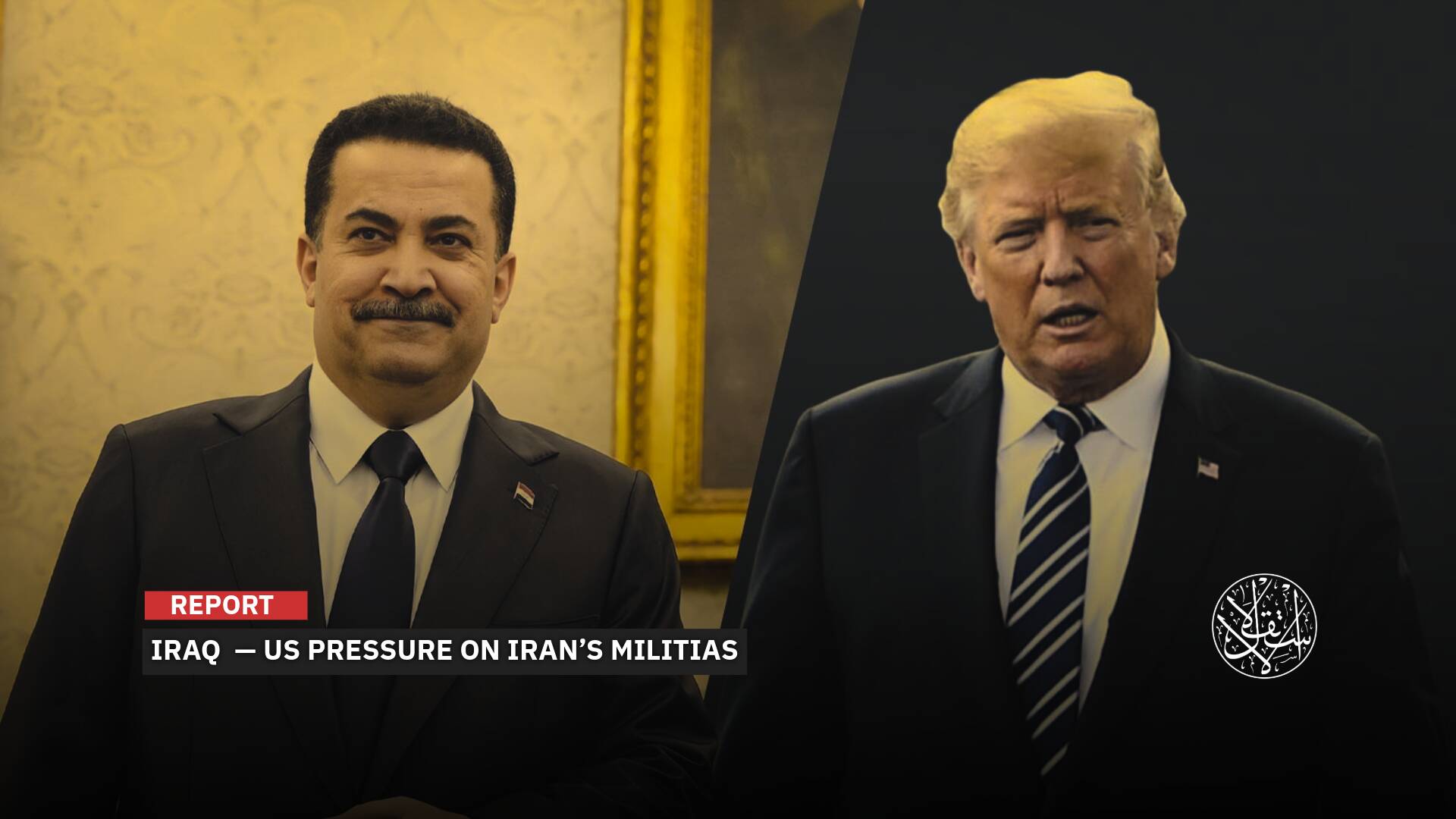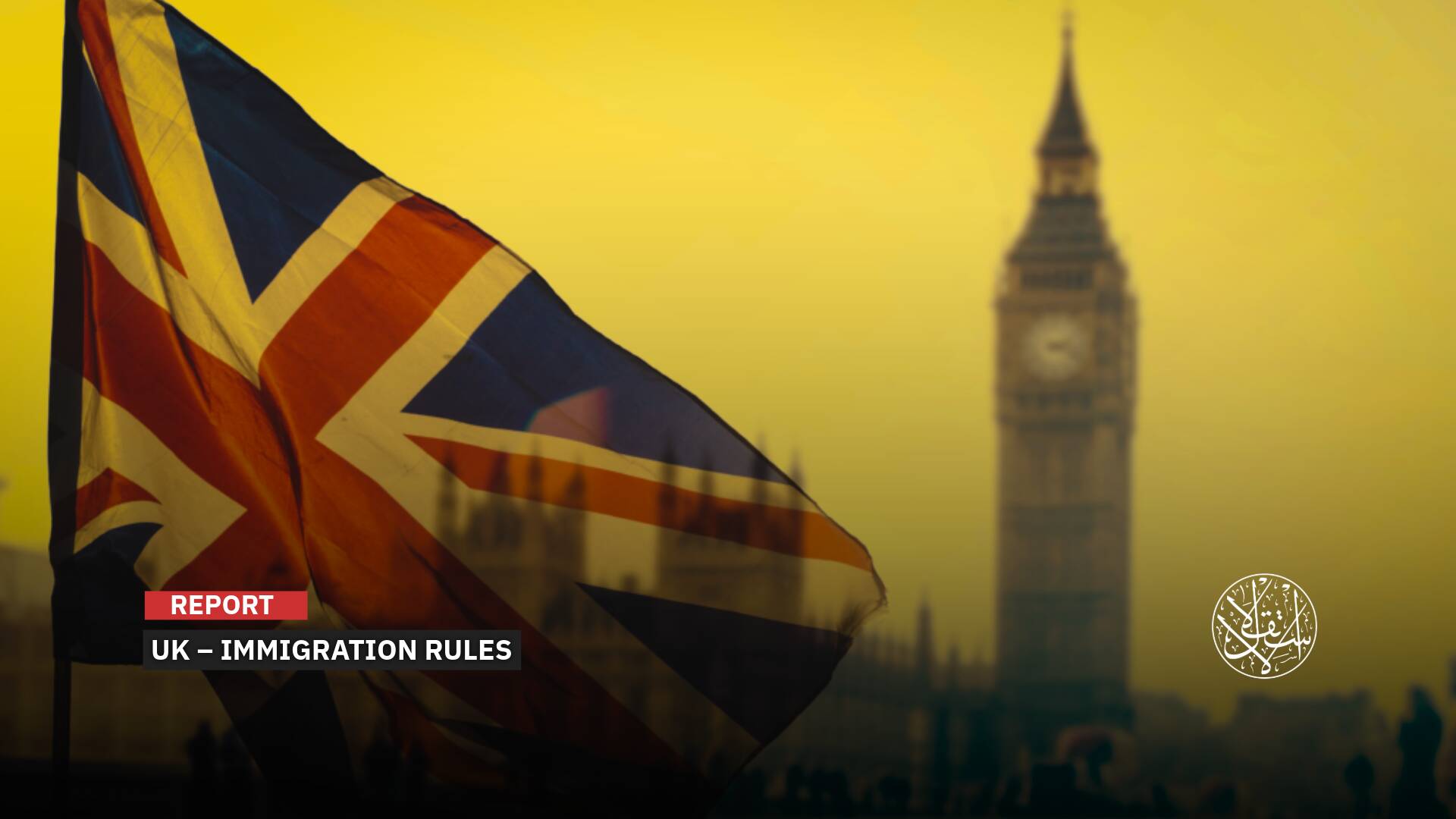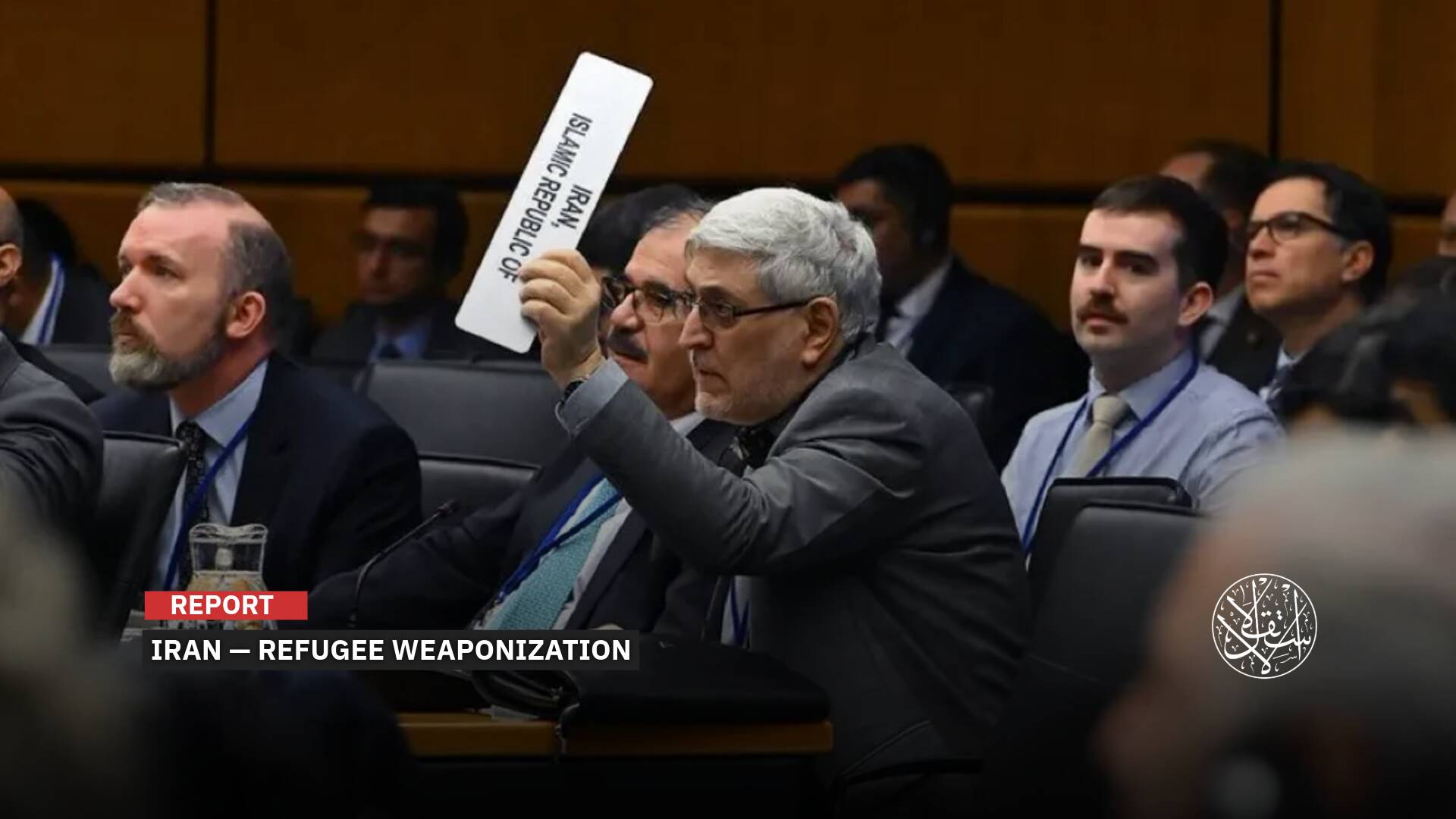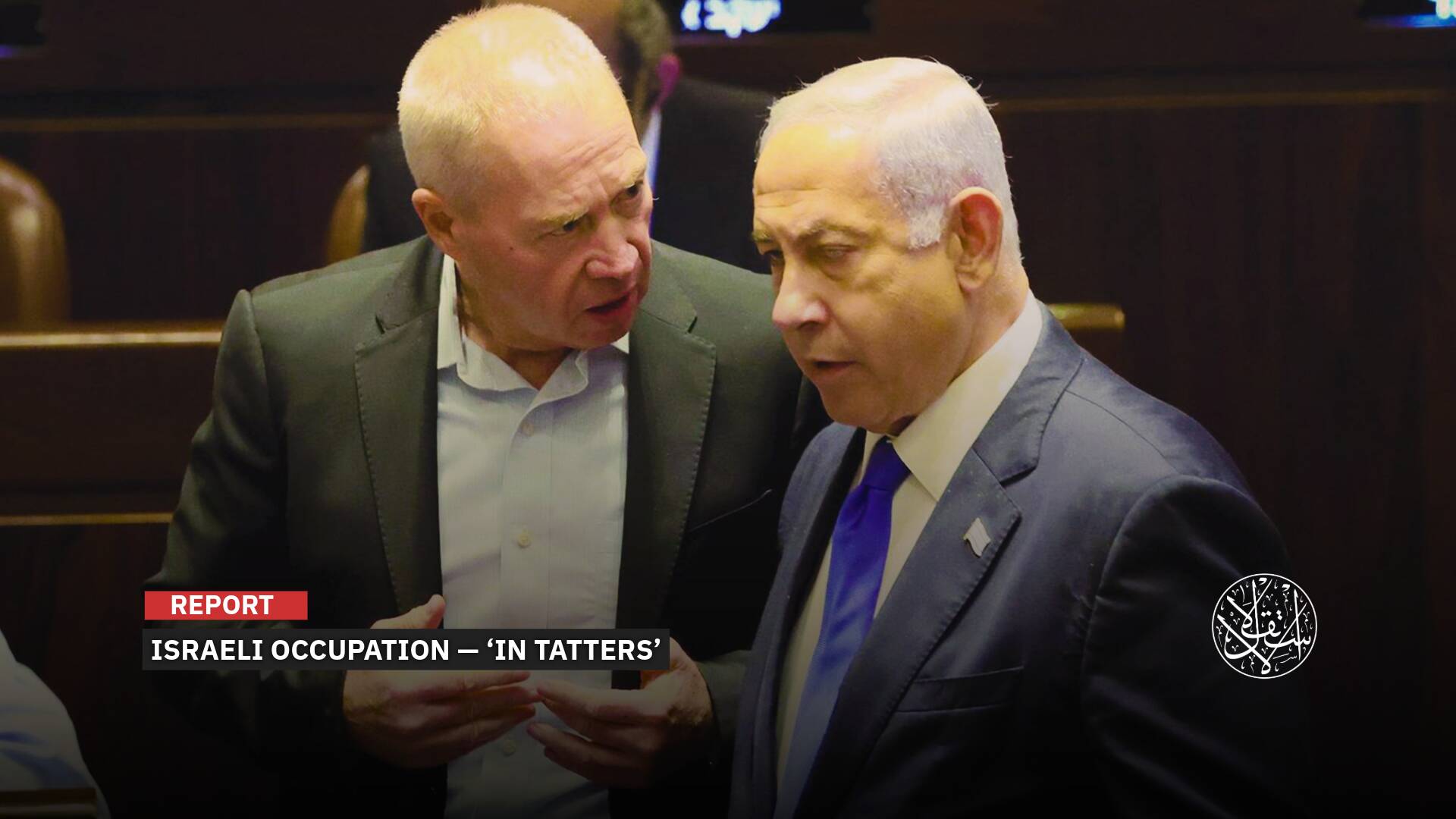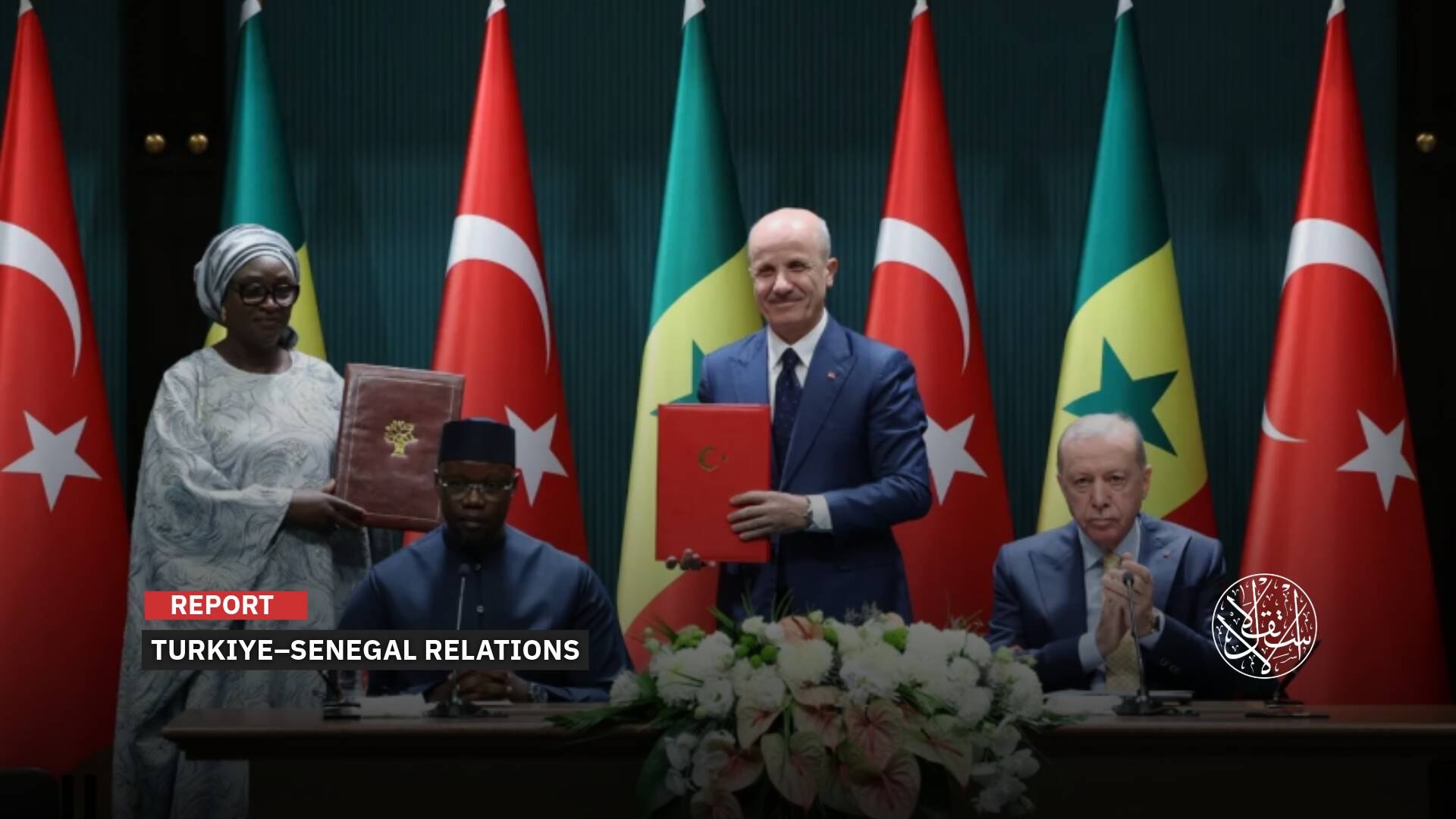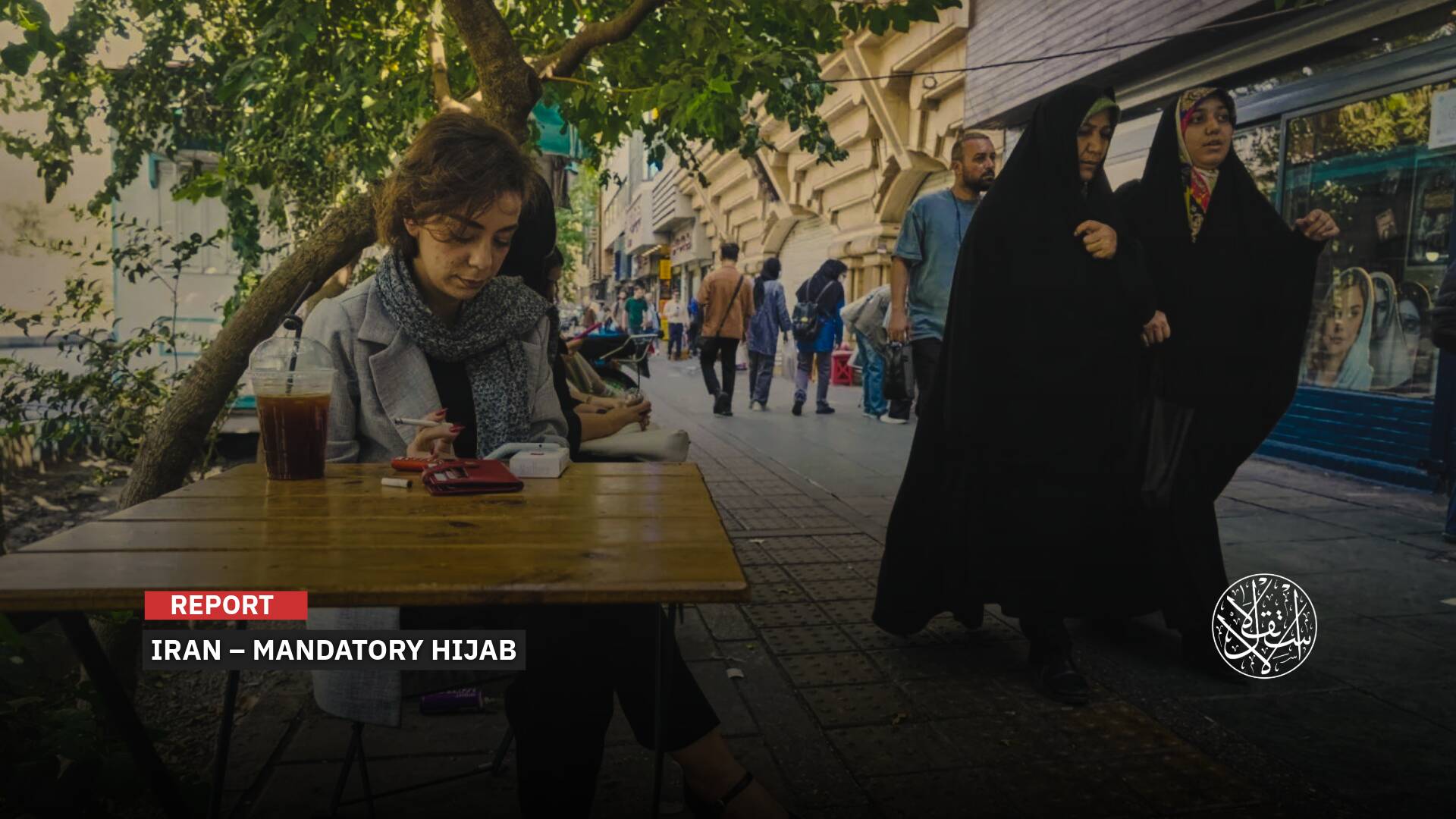How Political Differences Have Divided American Families

“A 2023 poll showed that political positions have become a key part of Americans' identity.”
“Living together as brothers” is not the case for Americans today, as they are more divided than they have been in a long time, in addition to the toxic political atmosphere that may lead to further escalation, especially with the approach of the fateful November 5 elections.
Former President Donald Trump describes the Democrats as leftists and fascists, who in turn consider the Republican candidate a danger to democracy and a threat to the nation.
On the other hand, observers believe that the divisions and family disputes of politicians and candidates may not have any impact on the minds of voters, while others see such rifts as having played a major role in shaping voters’ orientations over the past years.
Recent estimates say a third of married couples in the United States support different political parties.
Family Divisions
The 2020 US presidential election ended with an unprecedented political division, including an attempt by supporters of the losing candidate, Donald Trump, to storm the US Congress headquarters and obstruct the process of handing over power to Joe Biden, while the 2024 election comes with political polarization penetrating Americans' homes, causing divisions in families, even within the families of the candidates.
Gov. Tim Walz of Minnesota, the Democratic vice-presidential nominee, is the latest example of political divisions in the families of the candidates.
Last September, his brother Jeff Walz spoke on social media about the disagreement between them, indicating that he is 100% opposed to Tim's political ideology.
He indicated his support for the Republican candidate, Donald Trump, but said that he wants to stay away from any political campaign before the elections scheduled for next November, according to CNN.
In turn, Gov. Tim Walz has lamented the political divides in American families.
The rift between the Walz brothers is not the only one of its kind within the families of the 2024 candidates.
In the other camp, Trump was attacked by his nephew Fred Trump III, who described him as crazy during an interview with ABC News last July.
Fred said he will not support his uncle in the presidential race, and will vote for Kamala Harris.
It is noteworthy that Trump had filed a lawsuit against his niece Mary Trump, after she leaked his confidential tax returns to journalists for a New York Times investigation into Trump’s financial affairs.
Mary is known for her harsh and scathing criticism of her uncle Trump, and in 2020, Mary described her uncle in a book she wrote as a narcissistic personality and a pathological liar.
Trump was also a prominent player in the divisions that occurred within the Kennedy family, following the suspension of the independent candidate Robert F. Kennedy Jr. from his election campaign and his endorsement of Trump.
This sparked a wave of criticism from the family, who described his move as a betrayal.
In October 2023, four of his brothers condemned his independent campaign as a danger to the country, indicating in a statement that he did not share the same values and vision as his father.
A recent statement signed by five of his siblings said: “We believe in Harris and Walz. Our brother’s decision to endorse Trump today betrays the values our father and our family hold dear.”
Even in small races, candidates' families have been divided and their differences exposed, as in 2018 when 12 relatives of former Nevada Attorney General, Republican Adam Laxalt, published an op-ed criticizing him, expressing their unwillingness to support him in his bid for governor.
That led to a widening rift and media squabbling between the family. Afterward, 22 members of his family, including his mother, rushed to his defense, describing the other 12 as partisan Democrats and many of whom were not even registered to vote in Nevada.
Unlike Laxalt, who lost that election in 2018, Republican Rep. Paul Gosar of Arizona won in 2018, despite a rift with his family that escalated to the point where six of his siblings funded a TV ad against him, urging voters in Arizona’s 4th District to vote for his Democratic opponent.
Gosar responded to the move on CNN, calling his siblings liberal Democrats who hate President Trump.
Nearly one in five voters said that politics had hurt their friendships or family relationships, according to a recent poll conducted by The New York Times and Siena College.

Significant Impact
Family divisions over politics are old, and even former President Ronald Reagan, a pivotal figure in the Republican movement who greatly influenced the direction of the party, was not immune to family criticism.
Reagan’s sons openly criticized their father and some of his conservative policies, but this did little to change people’s opinions about President Reagan.
Prominent examples of how family disagreements have had a significant impact on election outcomes include the American Civil War and the Great Depression.
During the Civil War, specifically between 1860 and 1864, families in the North and South were deeply divided over presidential candidates and policy positions, which greatly contributed to dividing public opinion.
Similarly, during the Great Depression of 1932–1936, family disputes were widespread over which candidates were best suited to address the economic crisis and which policies would best serve the country.
These disputes had a clear impact on the presidential election, as they played a major role in shaping voters’ orientations, especially with the division of opinions within prominent families.
On his part, Samuel J. Abrams, a professor of political science at Sarah Lawrence College, believes that family disputes are unlikely to have any effect in changing anyone’s convictions at all.
“Voters’ attitudes toward issues and family disputes do not lead to significant changes in the level of support for one candidate or another,” he adds.
On the other hand, William Hall, a professor of political science at Webster University, believes that public disputes and sharp disagreements between members of prominent families over political candidates seeking public office can have an impact, and may even affect, to some extent, the outcome of the elections.
In turn, political analyst Jay Coleman sees that for candidates in the middle of a high-stakes election, the rifts in families can create additional headaches.

Political Polarization
The disagreements over politics that have torn apart politicians’ families have extended to simple American families.
Polls indicate that partisan polarization in the United States is increasingly influencing voters’ personal choices, and that political positions have become a major part of Americans’ identity.
A study published by Newsweek magazine in March 2023, which included more than 6,000 people around the world, found that 81% of respondents in the United States prefer not to enter into serious relationships with people of a different political orientation, a percentage higher than the global average of 76%.
In January 2022, a research by the Carnegie Endowment for International Peace found that the U.S. was among nations with chronically pernicious levels of polarization, which had been occurring since 2015.
In the same context, analysts believe that the polarization witnessed by American society is largely related to generational and cultural differences that affect political perceptions and opinions.
The political rift has also led to renewed debate over the US electoral college, especially with five US presidents winning through it, the last of whom was Trump who won the 2016 elections despite losing the popular vote.
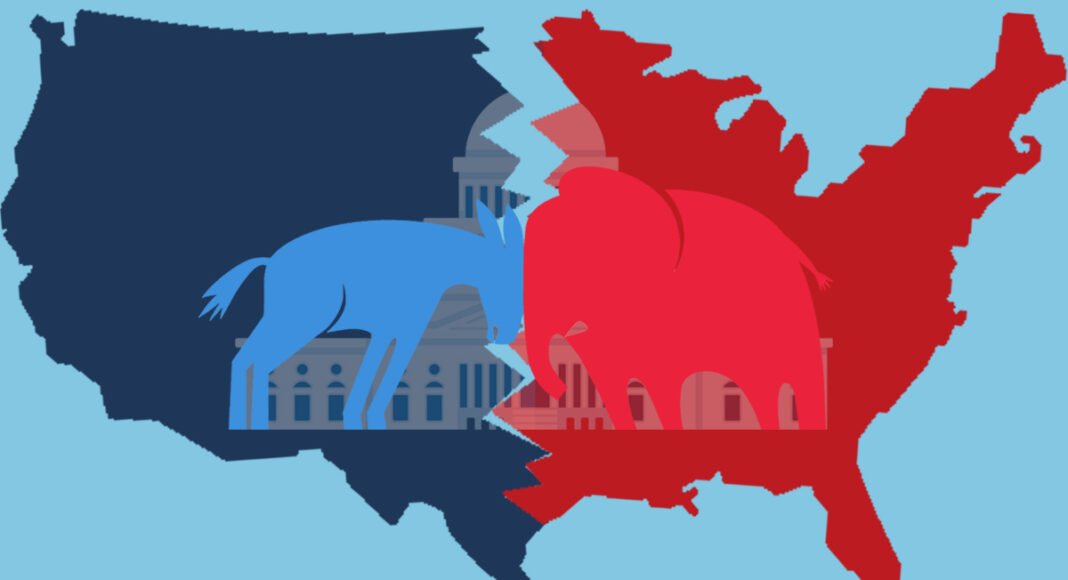
Professor Samuel J. Abrams noted that the extent of divisions between American families due to politics is very limited, indicating that his research shows that these divisions are often exaggerated.
He also cited the National Survey of Family Life in the United States, which showed that relatively few Americans have stopped talking to family members due to political issues.
Sources
- In Politically Divided America, Even the Walz Family Has Painful Rifts
- 12 Laxalt family members oppose Laxalt for Nevada governor. Here's why, in their own words
- Rep. Paul Gosar’s siblings in new ad: Don’t vote for our brother
- Today’s Politics Divide Parties, and Friends and Families, Too
- Why Democrats and Republicans Aren't Dating
- What Happens When Democracies Become Perniciously Polarized? [Research]
- Emerging Trends and Enduring Patterns in American Family Life [Study]


